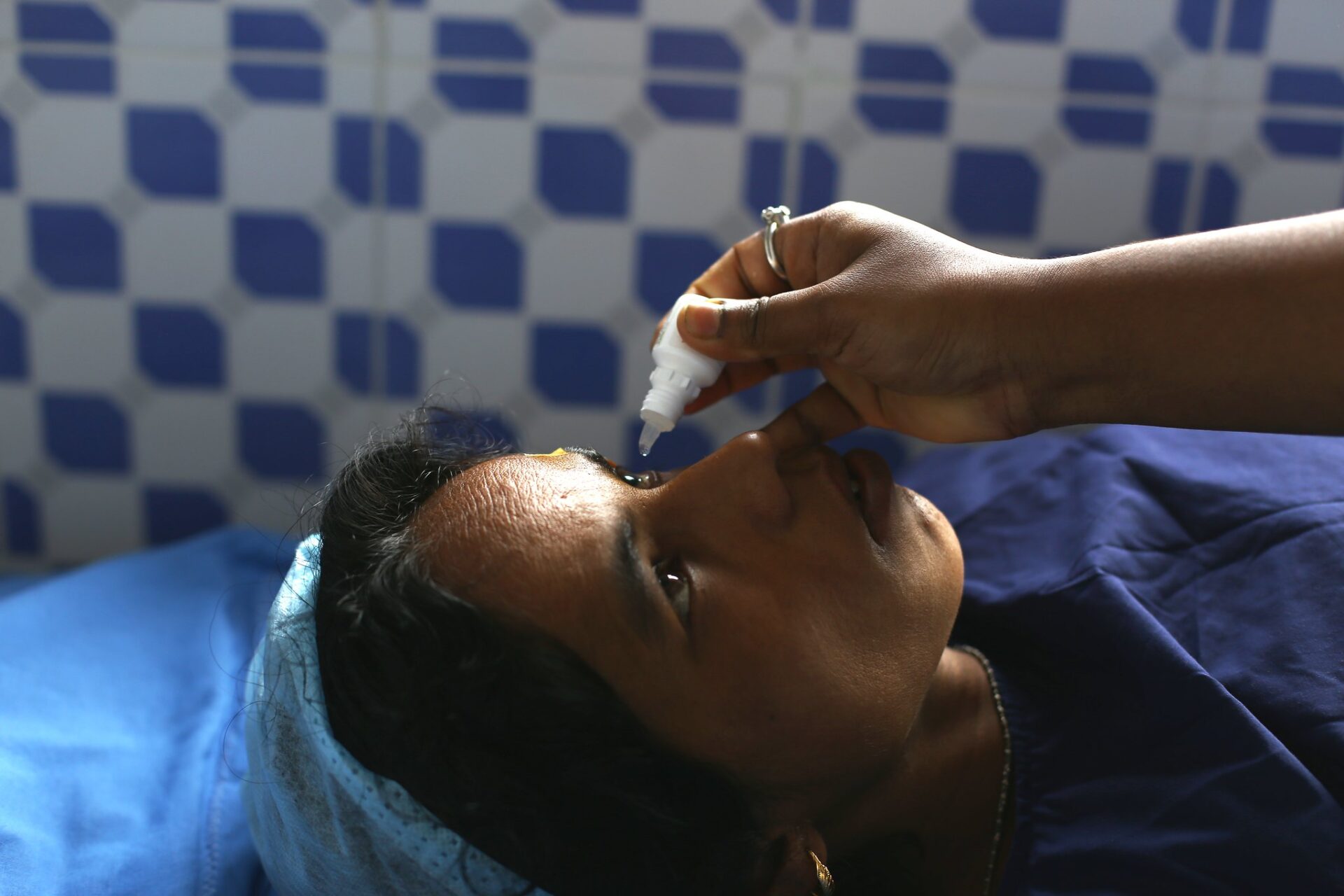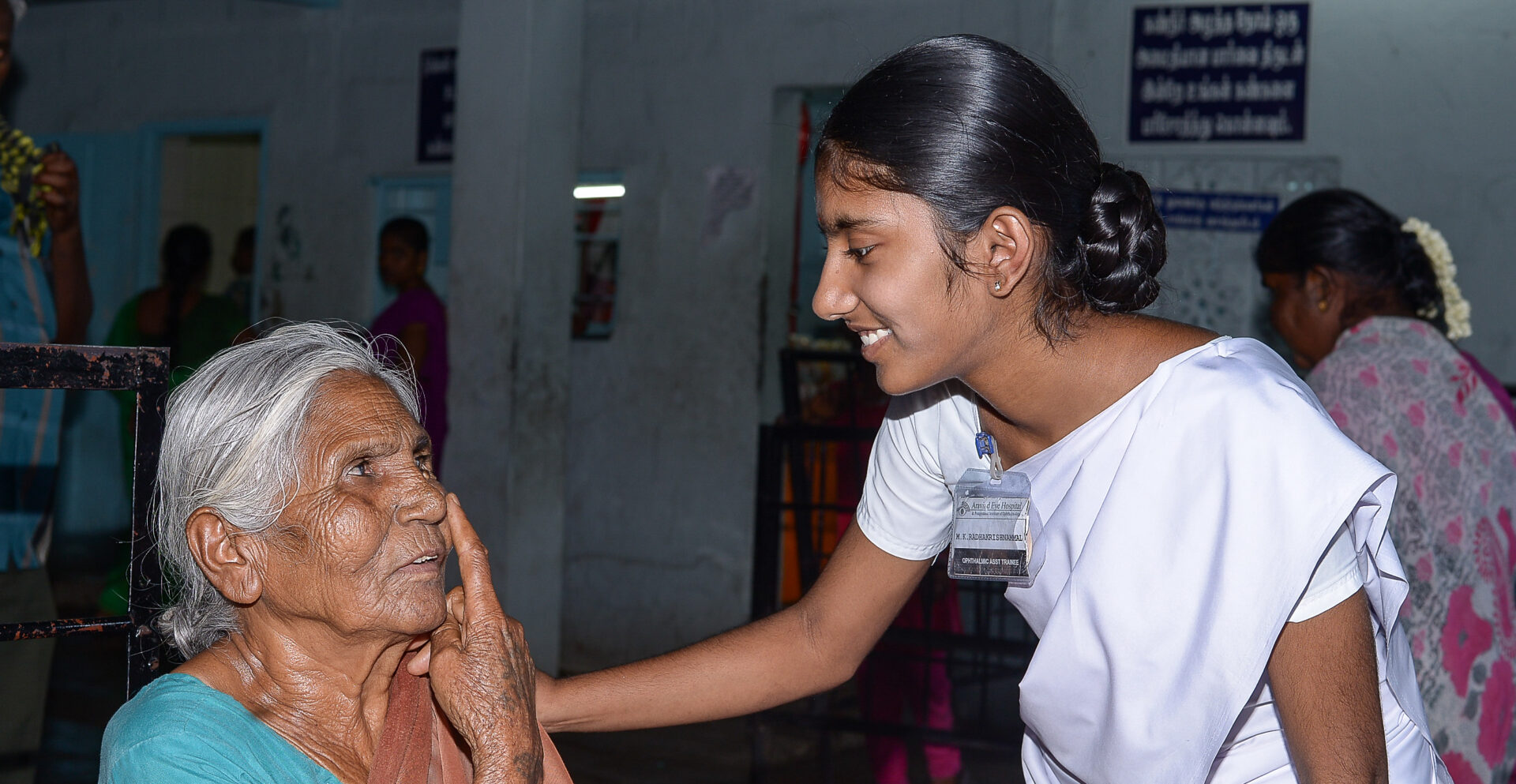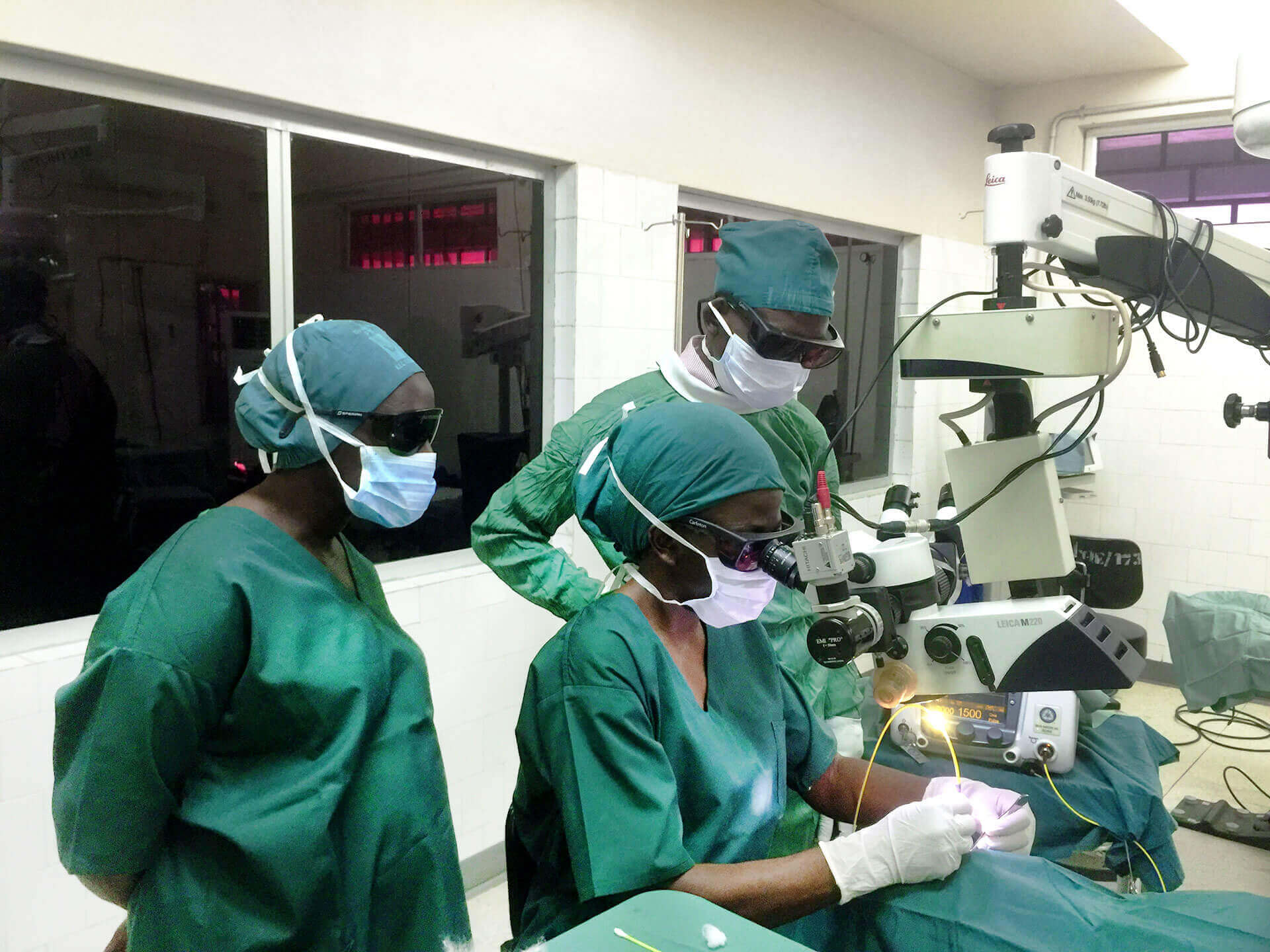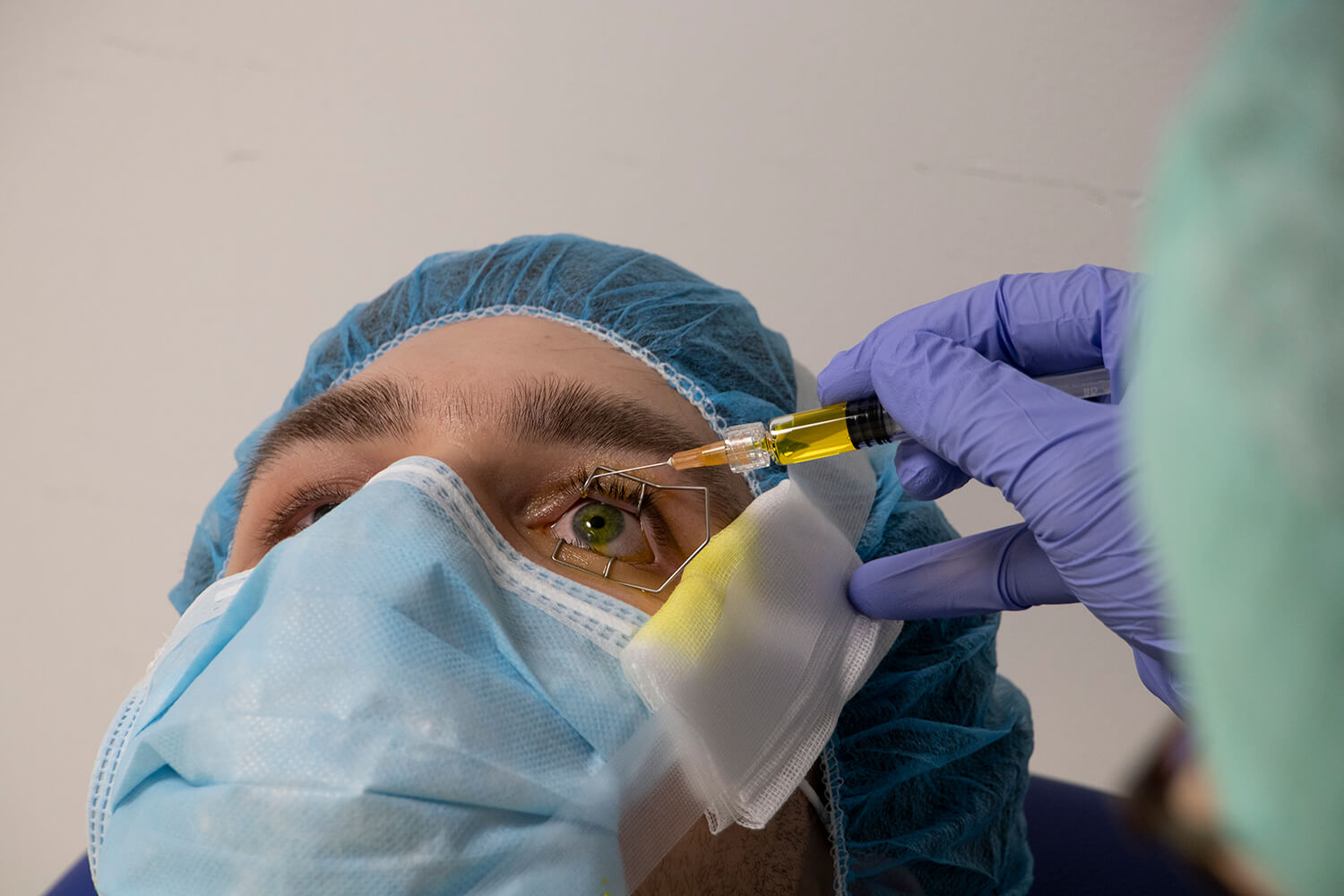Ophthalmology
Research to reduce visual impairments and blindness in low and middle-income countries
Global estimates of visual impairments point to a major challenge globally with over one billion people suffering from blindness or mild, moderate to severe visual impairments. Although the large majority of affected people live in low- and middle-income countries (LMICs), only a limited research effort is focused on their specific challenges.
With the current ophthalmology funding program, Velux Stiftung wants to contribute to ultimately reduce visual impairments and blindness in LMICs through research funding.
The ophthalmology program at a glance
Strategic focus:
- Developing and strengthening institutional research capacity in LMICs, reinforcing independent ophthalmology research locally at the institutional level in a sustainable manner
- Identifying and working on the specific biomedical knowledge gaps in LMICs in relation to the local context and environment
Projects that will induce a change of perspective in ophthalmology research and will strengthen the institutions necessary for this research to take place. In the long run the projects will provide innovative and effective solutions for the challenges in eye health specific to LMICs.
Project type:
- Institutional research capacity strengthening projects: projects aiming at sustainably building, developing, or reinforcing institutional structures enabling biomedical ophthalmology research in LMICs.
- Innovative and interdisciplinary biomedical research projects aiming to develop and validate new diagnostic, prevention, or treatment methods for eye diseases adapted to the local context of LMICs. Such projects must also contribute to some extent to strengthen capacities of the institutions in LMICs.
Note that projects with a higher share of institutional research capacity strengthening aspects will be prioritized in the project assessments.
Duration of the program:
- 2021-2025
- One specific call for proposals every year
Next call for proposals: The details of the call 2024 can be viewed here. The general eligibility criteria of the foundation apply.
Next deadline: 30 April 2024, with a final decision on proposals in November 2024
Selection procedure: All applications go through a formal screening by the foundation management. The selection of the applications that will be presented to the board is performed by a scientific committee according to our funding criteria. The foundation board of Velux Stiftung will take the final funding decision.
The scientific committee is currently composed of 9 experts originating from Brazil, Belgium, India, Ivory Coast, Malaysia, Switzerland and the UK. Their expertise covers a variety of perspectives including basic and applied ophthalmology research, research capacity strengthening for institutions, as well as transfer and implementation in LMICs.
Please find here the list of approved projects in the first three years of the program.
If you are unsure about the fit of your project idea to our program, please contact us beforehand.
Projects we do not fund
Under institutional capacity building for research, we do not fund research fellowships not linked to a concrete research plan, structures that will only be available during the project duration, capacity building for eye care (e.g. training for eye care staff in care delivery).
Note that we do not fund research where the main focus lies in health systems or health services research, implementation research or intervention science, health economics or community development. We also do not support projects aiming to strengthen capacity for eye care (e.g. innovative ways to train eye care professionals).
Basic, clinical, epidemiological, technology development studies as well as studies to understand the basis and test new visual impairment prevention methods will only be considered if the context, environment, and specificities of the relevant LMIC are addressed and elements of institutional research capacity development are proposed.
Projects

Simpler diagnostics for fungal keratitis

A magic bullet for clear eyesight

Fighting the silent thief of sight
